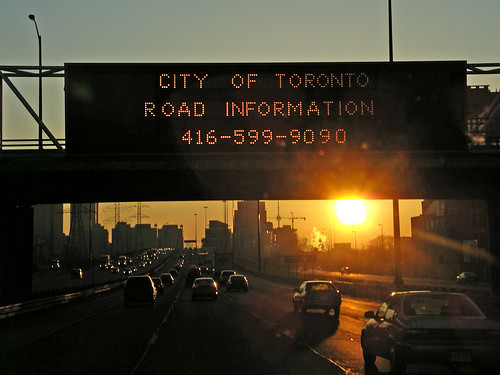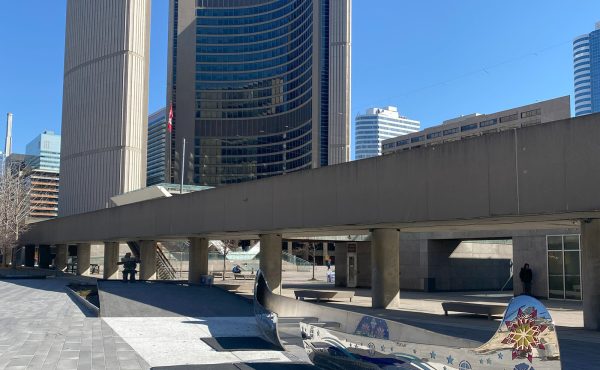
Cross-posted from Eye Daily.
Considering how hard up for cash our city is — not to mention how smoggy — it’s a wonder David Miller doesn’t give more thought to implementing a congestion charge in Toronto. Even the Economist finds this strange. From their July 26th issue:
The city’s case for even more autonomy would, however, be boosted if Mr Miller made more effective use of the powers he already has. Road tolls or a congestion charge stand a better chance of winning approval than his current tax proposals, reckons Tom Courchene, an economist at Queen’s University. They would reduce pollution and congestion, and scoop up money from out-of-city commuters.
I’ve reported this statistic before, but I’ll report it again: according to the Toronto City Summit Alliance, a $0.07-per-kilometre road toll would snag the city $700 million. In comparison, if Ottawa handed over one percent of the GST, Toronto would get $450 million a year (not that we shouldn’t continue to pressure them to do so).
By now, Miller has made it clear: he won’t consider implementing road tolls until enough transit options are in place to provide drivers with an alternative. Some people see this as a “chicken and egg dilemma.†How will we find the money we need to invest in the kind of transit we want without road tolls? Others say that the 905 will never take lead in installing road tolls in their region (Miller has argued that the GTTA would have to participate in order for tolling to work).
And then there’s the argument that simply implementing a congestion charge of some sort could help improve transit itself. According to Kamal Hassan, after London mayor Ken Livingstone imposed a congestion charge in his city (a move that was unpopular at first, but is now supported by 60 percent of the public), subway ridership went down, bicycle ridership went up over 30 percent and bus ridership went up 38 percent. “When you clear the roads, buses move more quickly. Suddenly a bus is an attractive alternative,†Hassan says.
Hassan, it should be pointed out, has a stake in seeing more and more cities jump onto the congestion charge bandwagon. He is the CEO of the Toronto-based Skymeter Corp, which was recently profiled in the business section of the Toronto Star:
“Miller has valid concerns,†says Kamal Hassan. “The handicap to current congestion systems like the ones in London and Singapore is that they’re all gate-based systems, just like the 407 highway.â€
By gate-based system he means there’s a point of entry into a defined zone, and a toll is required to enter that area. Hassan agrees there are limitations to such systems. But it doesn’t mean the idea can’t fly. It just means Toronto has to look for a more flexible system.
Skymeter, Hassan would argue, has a combination of technologies that fits the bill. First are on-board vehicle meters that communicate with a global satellite positioning system specially enhanced for navigation. Second is proprietary software that collects time and location from vehicles and determines congestion charges for billing.
Instead of charging someone as they enter a zone, a city can use a Skymeter system to charge drivers based on how many kilometres they have traveled, the time of day they’re traveling and areas of the city they go to. A city can charge based on the emissions profile of a vehicle, and can even issue credits if someone decides to leave their car at home or park it during rush hours.
One thing that makes me question this new technology is privacy, though I would assume vehicles already decked out GPS can be tracked wherever they go already anyway. Clearly, there would be many issues to work out, but with cities such as Stockholm and London boasting of the success of congestion charge systems there, and other cities in the States currently considering the possibility, it’s hard not to wonder why our city council isn’t giving it more thought, especially considering our financial circumstances.



